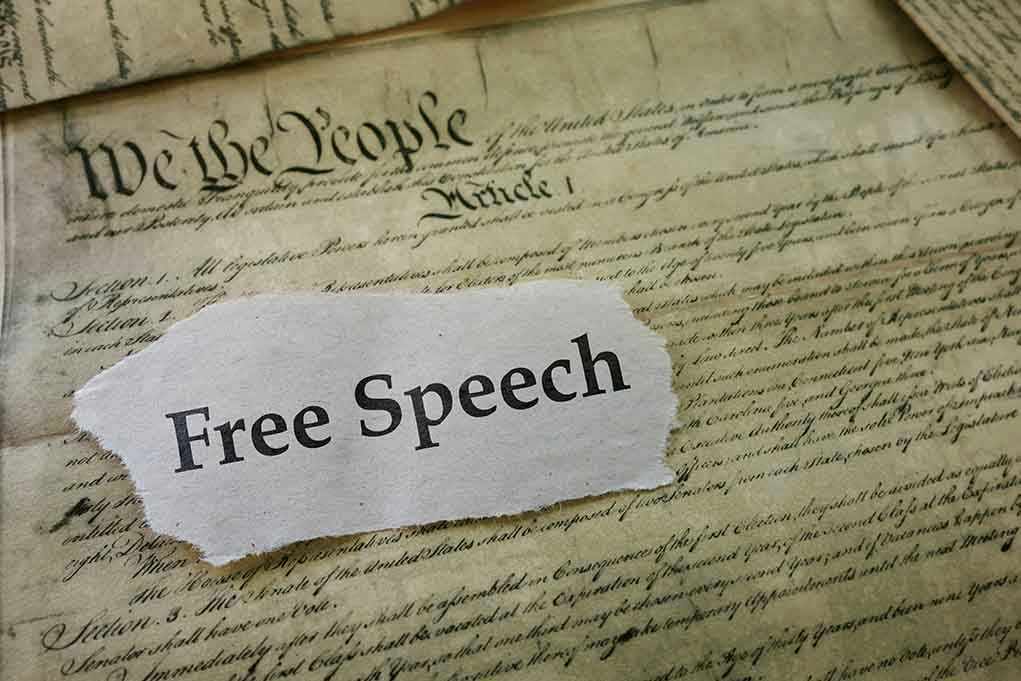
State censorship of personal license plates is fueling new outrage as Tennessee’s highest court upholds restrictions, leaving free speech—and American values—at a critical crossroads.
Story Snapshot
- A Tennessee woman’s decade-old vanity license plate was revoked by the state for alleged offensiveness, sparking a constitutional battle.
- The Tennessee Supreme Court ruled that vanity plates are government speech, not private expression, enabling the state to censor messages.
- Legal experts and free-speech advocates warn this ruling could expand government authority to silence individual viewpoints nationwide.
- The case now awaits review by the U.S. Supreme Court, with far-reaching implications for First Amendment rights and government overreach.
Free Speech or Government Overreach? Tennessee’s Controversial Plate Battle
Leah Gilliam, a Tennessee resident, is challenging the state’s power to revoke her custom “69PWNDU” license plate—used without issue for over a decade—after a single complaint labeled it offensive. The Tennessee Department of Revenue’s decision to censor her plate in 2021 ignited a legal battle over individual expression and the government’s reach into personal lives. Gilliam argues that this move constitutes unconstitutional viewpoint discrimination and an attack on her First Amendment rights, a concern resonant with Americans wary of creeping restrictions on free speech.
In 2024, the Tennessee Supreme Court sided with the state, declaring vanity plates to be government speech rather than personal expression. This followed the precedent set by the U.S. Supreme Court’s 2015 Walker decision, which allowed Texas to reject specialty plates featuring the Confederate flag. However, legal scholars note a critical distinction: while specialty plates are often state-designed, vanity plates reflect the owner’s chosen message. Many courts have ruled that such personalized plates are private speech, highlighting inconsistencies in legal interpretation and raising alarms among constitutional advocates.
Legal Precedents, National Attention, and Advocacy Group Concerns
The Gilliam case stands at the center of a broader debate about the boundaries of the government speech doctrine and the proper limits of state control. Historically, states have regulated vanity plates by rejecting combinations deemed offensive or misleading, but the direct censorship of long-approved plates raises new questions. Advocacy groups supporting Gilliam warn that allowing the government to silence personal messages on state-issued property could set a dangerous precedent, empowering states to suppress disfavored viewpoints under the guise of maintaining decorum or official image. This is a critical concern for those who see the First Amendment as a bulwark against government overreach.
Gilliam’s legal team and several free-speech organizations emphasize that most Americans view personalized plates as expressions of personal identity rather than state endorsement. Critics of the Tennessee Supreme Court’s ruling argue that expanding the government speech doctrine in this manner erodes individual liberty and undermines the core American principle of limited government. These concerns are amplified by the fact that, nationwide, there is a “dizzying array of censorship” and inconsistent standards for what messages are allowed, threatening both fairness and freedom for citizens.
Supreme Court Review and the Stakes for Conservative Values
As of September 2025, Gilliam’s petition remains pending at the U.S. Supreme Court, with the justices expected to decide during the 2025-2026 term whether to take up the case. If the Court agrees to hear it, their decision could have sweeping ramifications for how states regulate not only license plates but any form of quasi-public personal expression, including specialty plates and government-issued IDs. For Americans concerned about government expansion and erosion of traditional rights, the outcome of this case will signal whether the First Amendment still offers robust protection against arbitrary state censorship.
'69PWNDU': Vanity license plate issue returns to the Supreme Courthttps://t.co/xkBCiPtz8C pic.twitter.com/dkJ9QMLLXN
— The Washington Times (@WashTimes) September 2, 2025
In the short term, the Tennessee ruling affects thousands seeking vanity plates and sets a precedent in state-level regulation. Long-term, a Supreme Court decision could clarify or redraw the line between government and private speech across the nation. Legal experts, free speech advocates, and ordinary Americans alike are watching, recognizing that the stakes in this fight go far beyond one license plate—they touch the very core of what it means to have a government that serves, rather than silences, its people.
Sources:
Tennessee Supreme Court rules against woman who had license plate for 10 years
Vanity license plate issue returns to the Supreme Court
Tennessee woman challenges rejection of controversial personalized license plate in Supreme Court




